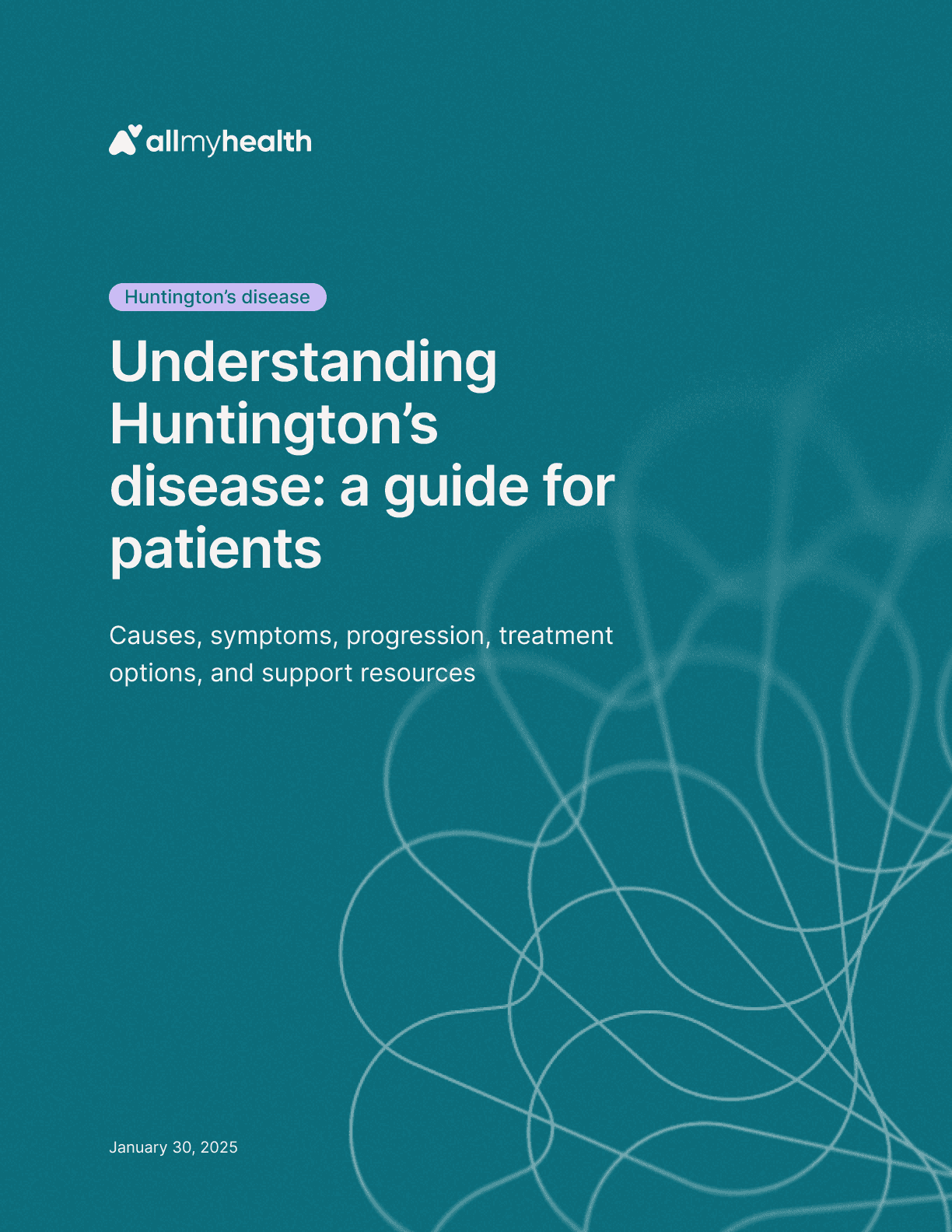- Huntington's Disease Insights
- Posts
- Huntington's Disease Insights
Huntington's Disease Insights
Understanding Huntington's disease: a guide for patients
Exclusive ReportUnderstanding Huntington's disease: a guide for patients Discover the essentials of Huntington’s disease in this accessible guide produced in collaboration with AllMyHealth - the platform that supports rare disease communities. Learn about HD causes, symptoms, progression, and available treatments, along with practical strategies for managing daily life. View the Full ReportThe report is available for free online on the AllMyHealth website. www.allmyhealth.io/report  |
Top StoriesAtalanta Therapeutics Secures $97 Million for CNS TherapiesFunding supports clinical trials for Huntington's, using RNAi to reduce harmful gene expression, potentially improving symptoms. This approach targets previously inaccessible brain regions. Read More →DNA destabilizing proteins linked to HD progressionProteins that normally fight viruses may destabilize DNA in Huntington's, leading to genetic changes that contribute to the progression of the condition. Read More → |
Latest Research A recent study led by Schriger et al. (2025) has explored the potential benefits of Acceptance and Commitment Therapy (ACT) for individuals living with Huntington’s disease (HD) and their caregivers. ACT is a psychological therapy that helps individuals build resilience by accepting difficult thoughts and emotions while focusing on actions that align with their values. The study included a case report of a 52-year-old man with HD who participated in a 6-session ACT intervention with his caregiver. After the therapy, the patient experienced a meaningful reduction in depression and improvements in his overall quality of life, particularly in physical functioning, mood, and worries. |